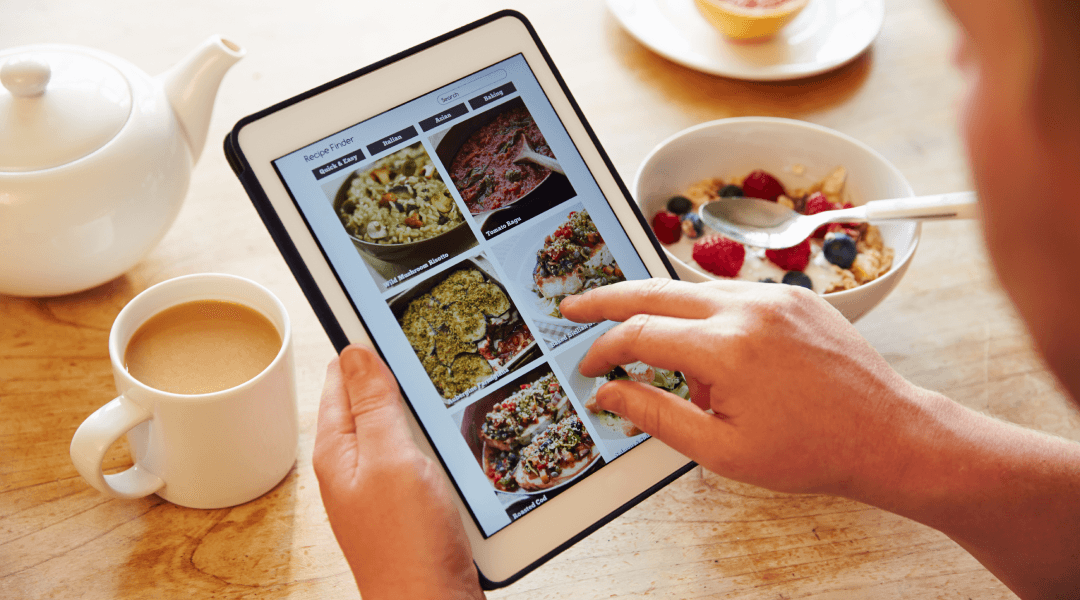

How meal planning can save you money
Picture this: it’s 5 p.m. and you calmly head into the kitchen and pull out the ingredients you need for the recipe you want to make. Usually you’d be scrambling for the takeout menus that would put you over your food budget this month, or digging in your pantry for a forgotten can of soup while your children whine about being hungry. But not today. Today you have a meal plan.
Meal planning is probably not a new concept for you, but you might not be using this powerful tool with your budget in mind. Let us help you see how it can help take control of your food budget and help you save money on groceries. And with the added benefit of making your life easier, of course.
Curb your impulse spending
Grocery stores are designed to get you to buy the products they want you to buy. Which can help you find what you’re looking for, but might also tempt you with candy and soda at the checkout.
When you try to shop just based on gut feelings, you’re likely to end up with a cart full of snacks and random ingredients. Not the building blocks for an actual meal.
Meal planning helps you put together a solid list that will help you say no to impulse purchases and food that you won’t use.
Minimizing food waste
We've all been guilty of letting fruits and vegetables spoil in the fridge or forgetting about leftovers until they're past their prime. The USDA estimates food waste at $161 billions worth of food each year. Meal planning ensures you buy only what you need and use it efficiently, preventing those dollars from ending up in the trash.
You can also get the whole family involved. When everyone helps choose meals and helps with preparation you’re less likely to end up with meals no one wants to eat.
Taming the Takeout Temptation
Eating out can be a major budget buster. With meal planning, you have a repertoire of delicious home-cooked meals at your fingertips. This reduces the urge to splurge on expensive takeout, especially on busy days when cooking seems daunting.
Unlocking the Power of Bulk Buying
When you plan your meals ahead of time, you have a clear picture of the ingredients you'll need throughout the week. This allows you to capitalize on bulk deals and sales, often found in larger quantities.
While the upfront cost might seem higher, the per-serving cost is often considerably lower, leading to substantial savings over time. Just be sure not to buy more than you’ll use before it goes back.
Saving your valuable time
Here’s another benefit of meal planning. When you know ahead of time what you’re going to eat that week, you can prepare it in advance. Meal prep can save you valuable time if you do things like chop all your veggies for the week or even pack all your lunches.
You can also do some batch cooking. Dedicate a few hours each week to cook larger batches of versatile dishes like grains, roasted vegetables, or protein sources. These can be used as building blocks for various meals throughout the week, saving you time and energy on busy days.
How to build a smarter shopping list
Struggled with meal planning before? It doesn’t have to be complicated. There are two ways to build your meal plan and your shopping list. Either decide what you want to eat that week, then add the ingredients to your list.
Or start by looking at deals and sales and come up with meals that fit those ingredients. The second will likely save you more money if you’re able to plan carefully and compare prices.
Start with Ibotta: Before you head to the store, choose your favorite store in the Ibotta app and look through the offers. Each offer will be added to Your List for easy reference at the store.
Choose flexible meals: Adaptable recipes can help you change ingredients at the grocery store that might be cheaper. For example, if your stir fry protein could be chicken or beef, and one is one sale that week.
Think seasonal: When planning your fruits and veggies, produce that’s in season is usually less expensive, and more flavorful.
Switch it up: Be willing to try different brands or even generic brands. You might find a new favorite (especially if there’s a cash back offer on it!).
Stock your pantry: If you have extra money in your grocery budget for the week, pick up some pantry staples for quick and easy meals.
Protip: When you’re in the store, make sure you’re getting the correct item for each cash back offer by tapping Check product barcode on the offer details.
Even if you’re not ready to jump into a month’s worth of meal planning, making a rough plan can help you get started. Think of two or three meals for the next week and go from there. Once you get comfortable with some basic meal planning you’ll find the mental load and the grocery budget benefits so great you won’t want to stop.

